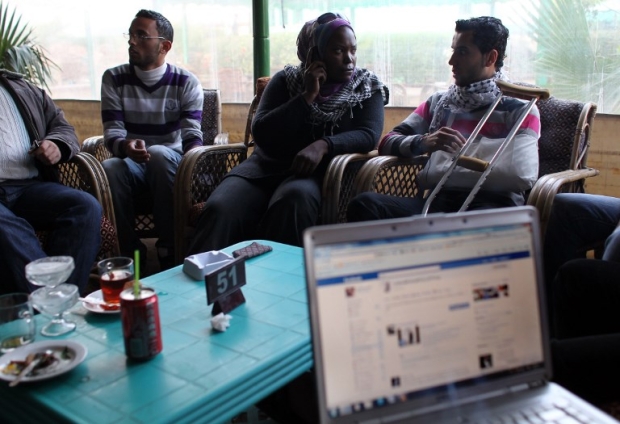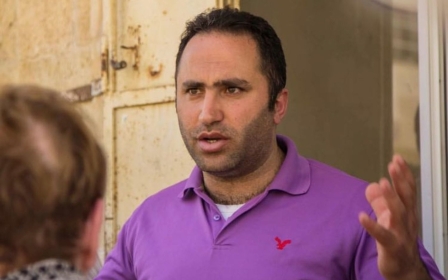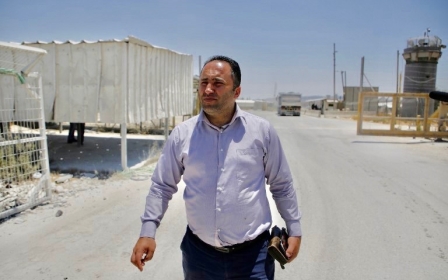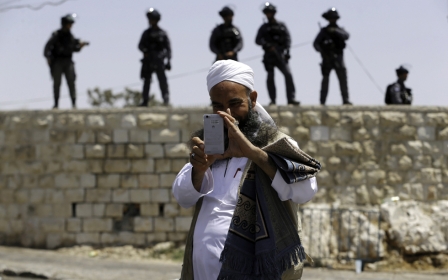Palestinian activists crushed online by the PA, Israel and Hamas
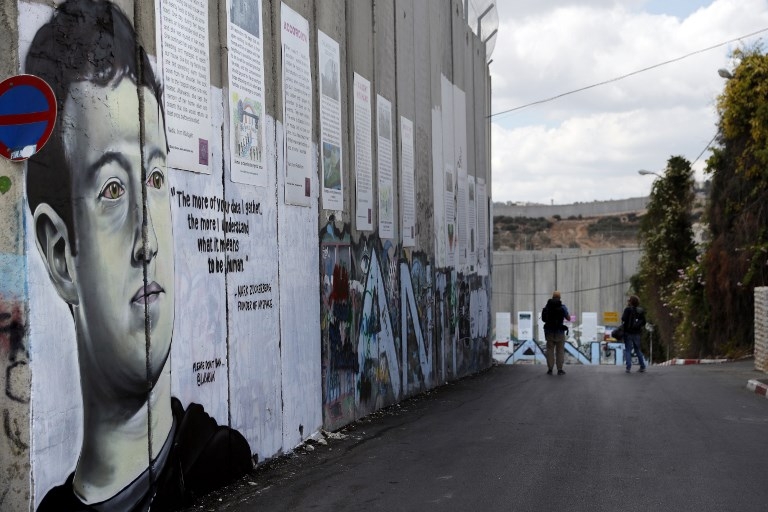
RAMALLAH - When 16-year-old Ahed Tamimi slapped an Israeli soldier in the face outside her home, that brief moment in her small West Bank village drew global attention because it was streamed live to Facebook by her mother.
Tamimi has now been charged with throwing stones, incitement and making threats.
But the very act of broadcasting it has also been branded a crime by Israeli authorities and her mother, Nariman Tamimi, now faces charges of incitement.
It is perhaps the most recent example of Palestinians being deprived of their digital rights, something they face from all sides, activists said on Wednesday at a digital activism conference held in the occupied West Bank's administrative capital Ramallah.
"Palestinian digital rights have been repeatedly violated in the last two years, there are many risks and many threats to these rights," said Nadim Nashif, director of 7amleh, which organised the Palestinian Digital Activism Forum.
"People are arrested because of what they say, what they write on Facebook."
According to 7amleh, a group that encourages Palestinians to use social media for activism, the freedom to use the internet for expression and with privacy is a human right – but one increasingly under attack in Palestine and Israel.
A fifth of Palestinians, including those with Israeli citizenship, have been arrested or investigated by either Israeli or Palestinian authorities for sharing their opinions online, according to results of a poll published by 7amleh in 2017.
Nashif said it largely started with Israel trying to crack down on protests and alleged stabbing attacks by individual Palestinians in October 2015 but has now extended to Palestinian authorities in the West Bank and Gaza Strip who want to silence dissent.
"Unfortunately, all the authorities on the ground, be it Israel, the Palestinian Authority and Hamas in Gaza have fallen short," said Omar Shakir, Human Rights Watch's Israel-Palestine director, who was speaking at the event.
'We're increasingly now seeing them using the same sort of tactics in the online space to make it more difficult for individuals to organise, to exchange ideas, to criticise'
- Omar Shakir, Human Rights Watch's Israel-Palestine director
He said Hamas had arrested Gaza residents critical of it, including a person who had been tagged in a post about protests over electricity shortages in the blockaded coastal enclave.
"We're increasingly now seeing them using the same sort of tactics in the online space to make it more difficult for individuals to organise, to exchange ideas, to criticise," Shakir told Middle East Eye, saying that traditional methods of repression used by the various actors were now also moving online.
He said Nariman Tamimi would have been within her rights under international law to film her daughter Ahed's confrontation with the Israeli soldier in December and that she had "pretty clearly" been arrested for criticism of Israel and not under international standards for an incitement charge.
Electronic Crimes Law
For many of the activists at the conference, a looming theme was the Palestinian Authority's Electronic Crimes Law, introduced last year and slammed for being a broad and vague means to silence online dissent.
Nashif said the PA chose the most draconian version of laws on policing the internet, copied from the United Arab Emirates who he said "even by Arab standards, this is the worst example."
Many of the attendees took the opportunity to berate Samer Sharwaqi, a Palestinian Justice Ministry official in attendance, over the law.
They also criticised Facebook's product policy manager Aibhinn Kelleher about the company's alleged co-operation with the Israeli government.
Israel requested data for 509 Facebook accounts in the first half of 2017, the most recent data made available by the company, and provided at least some information in 77 percent of those cases.
A queue of young Palestinians lined up to direct their complaints at Kelleher, demanding answers about what the social network does with data on its users, reported meetings with Israeli officials and the alleged silencing of Palestinian dissent through the platform.
Kelleher said there were "misconceptions" about Facebook's meetings with Israel, which she said "doesn't mean that we take a position" on its actions.
'Our rights are being breached in a technical way that we don't understand'
- Jalal Elias, Palestinian citizen of Israel and law student
But some were unsatisfied with her answer, especially in light of the forum’s focus on protecting individuals’ digital rights from governments.
"They fell short on that, they didn't explain this," said Jalal Elias, a Palestinian citizen of Israel who studies law at Tel Aviv University. "Our rights are being breached in a technical way that we don't understand."
He said the conference and the response from Facebook had made him more aware of his digital rights but also more sceptical about social media platforms and their role in political organising.
It was "understandable" that companies meet with governments, Elias said, especially when they are threatened with being closed down for not cooperating, "but, on the other hand, do not claim that you harbour free speech and are a platform for the weak, because you're not."
Nashif said that was, in part, the intention of inviting companies like Facebook and YouTube – who faced far less criticism – even though they skirted the questions.
"Bringing them here is also to make them accountable to the Palestinian public because at the end of the day, they go to the Knesset, to lots of Israeli meetings, which is good, but the point is they need to be accountable to the Palestinian users."
New MEE newsletter: Jerusalem Dispatch
Sign up to get the latest insights and analysis on Israel-Palestine, alongside Turkey Unpacked and other MEE newsletters
Middle East Eye delivers independent and unrivalled coverage and analysis of the Middle East, North Africa and beyond. To learn more about republishing this content and the associated fees, please fill out this form. More about MEE can be found here.


